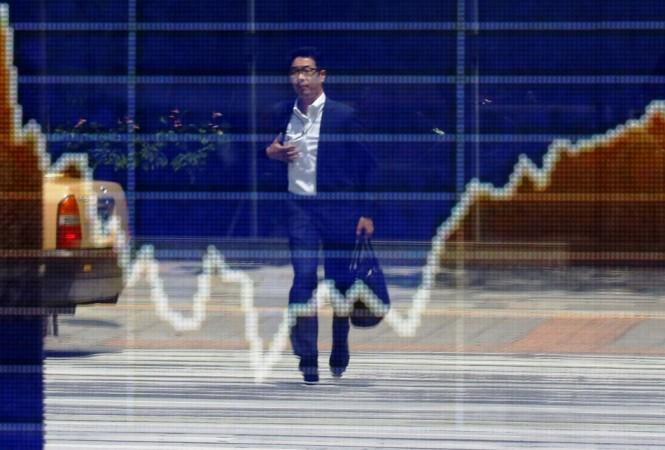
Asian shares pared early losses on Thursday but held below the previous session's one-month highs, while expectations of credit easing by the European Central Bank knocked yields on U.S. and European bonds.
MSCI's broadest index of Asia-Pacific shares outside Japan was marginally lower, after it rose to its highest level since April 10 on Wednesday. Shares struggled to rise after Wall Street retreated overnight from record highs marked the day before.
Expectations of monetary easing by the ECB, meanwhile, drove bond prices up and yields down.
Reuters on Wednesday quoted sources as saying the central bank is preparing a package of policy options for its June meeting, including cuts in all its interest rates, and targeted measures aimed at boosting lending to small and mid-sized firms.
The yield on benchmark 10-year U.S. Treasuries fell to six-month low of 2.525 percent, breaking out of a long-held range, and last stood at 2.548 percent.
The yield on 10-year German Bunds fell to a one-year low of 1.369 percent while Italian 10-year debt yielded a record low of 2.901 percent.
British government bond yields dropped to six-month low of 2.578 percent when the Bank of England offered a surprisingly dovish monetary policy outlook, even though the BoE was seen as likely to be one of the earliest major central banks to raise interest rates sooner rather than later.
The BoE pushed back against expectations it might raise interest rates in less than a year's time, leaving largely unchanged its assumptions on the timing of interest rate rises even as it acknowledged a strong recovery in the labour market.
"Their comments are extremely similar to what the Fed has said. Yes, the jobless rate is falling faster but wages are not rising much," said Tohru Yamamoto, chief fixed-income strategist at Daiwa Securities.
Small wage rises mean low inflationary pressure, allowing central banks to maintain extremely easy monetary policy. "So you can say that markets are now starting to expect a new normal, where wages do not rise much (in developed countries). If even the BoE won't raise rates, the Fed probably won't either," Yamamoto added.
In the currency market, sterling, which had been rallying so far this year on BoE expectations, fell to a one-month low of $1.6753 and was steady on the day at $1.6773.
The euro was also nearly flat at $1.3719, not far from Tuesday's one-month low of $1.36885, after tumbling 2 percent from a 2 1/2-year high just under $1.40 after ECB chief Mario Draghi last week indicated his readiness to ease policy next month.
The Japanese yen gained after data showed Japan's economy grew at its quickest pace in over two years in the first quarter, boosted by last-minute buying ahead of sales tax hike in April and a jump in business investment. The dollar was down 0.1 percent to 101.81 yen, after earlier falling as low as 101.66 yen.
"Strong economic indicators tend to be associated with expectations of Bank of Japan foregoing further easing, so there may have been a knee-jerk reaction," said Kyosuke Suzuki, director of forex at Societe Generale in Tokyo.
The yen's gains hurt Japanese shares, pushing down the Nikkei share average 0.9 percent.
Later in the day, the euro zone will publish its first quarter GDP data while in the United States, CPI and industrial output figures are due.
In commodities trading, U.S. crude was down about 0.3 percent at $102.07 a barrel but were close to three-week highs hit overnight on the back of a draw on crude stocks at the Cushing, Oklahoma contract delivery point.
Spot gold was little changed at $1,305.50, not far from a 1-week high, after gaining nearly 1 percent overnight.

















